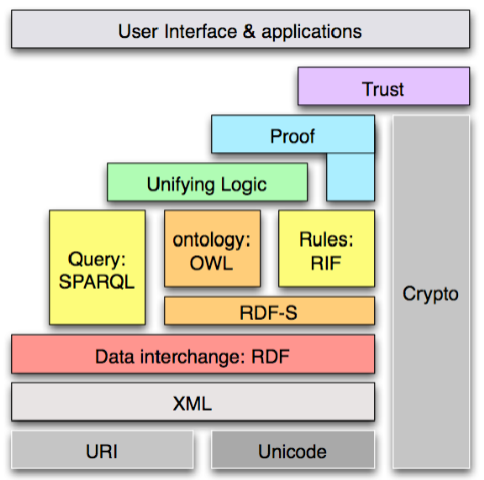Ask.com, Google, Microsoft and Yahoo! have announced support for a new feature of the Sitemap standard - you can now link these XML files (that describe a sites structure) from the robots.txt file and don't need to manually alert every search engine to where your file is. This reminded me of the "Why the Semantic Web will fail" debate a few weeks back - remember the blog post that claimed that, I quote: "The Semantic Web will never work because it depends on businesses working together, on them cooperating". This new cooperation over the Sitemap standard is just another example of how competing businesses are cooperating, even creating metadata standards.
Revisiting this blog, however, I found that its author, Stephen Downes, has actually addressed my critic (among others) in a second blog post. I had said:
RSS, ATOM and iCal are examples for data standards jointly supported by different companies - there's just no reason to assume that this list cannot grow.
And he replies:
Neither RSS not Atom are RDF (except for RSS 1.0, which has a usage of about 3 percent). I also posted figures on my website just this week showing that iCal usage is something like 7 percent. iCal isn't RDF either - hence the need for a converter http://torrez.us/ics2rdf/ and the resulting proliferation of RDF versions of iCal, none of them official. Meanwhile, neither Google nor Outlook are based in iCal.
Which I don't accept as a rebuttal of my argument. He said: "can't work, businesses don't cooperate, don't come up with joint standards", I said: "they do, look at these standards", he says: "that's not RDF" - but that's not the issue. I personally don't see the vision of the Semantic Web as restricted to "only RDF", I'm fine with Semantic Web applications build with XML/RSS/ATOM. For me RSS is conceptually a pure breed Semantic Web application - whether it's build on RDF or not. And even if I where to grant the point that these companies have yet to agree on a "real" Semantic Web standard, he then has to argue that "business do cooperate but they would never do it on Semantic Web standards" .. for which I don't see any arguments right now.
And about iCal and Outlook/Google: Well, the Outlook I use also displays the data from my Google Calendars - and the integration is done with iCal. Neither of these applications may be "based in iCal" - but they surely support it.
Sadly he didn't post a link to this analysis that lead to the "iCal usage is something like 7%" statement and I couldn't find it - so I'll probably never know the answer to the "7% of what?" question (of all Internet traffic? applications aggregating calendar data?) ;)
Labels: SemanticWeb




